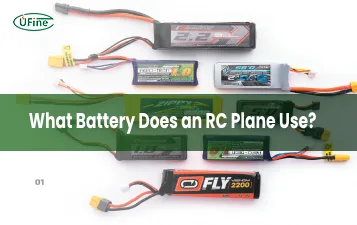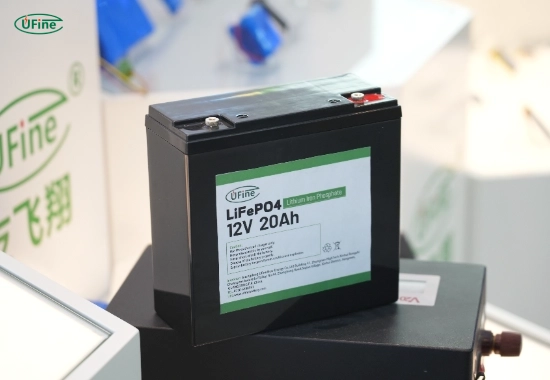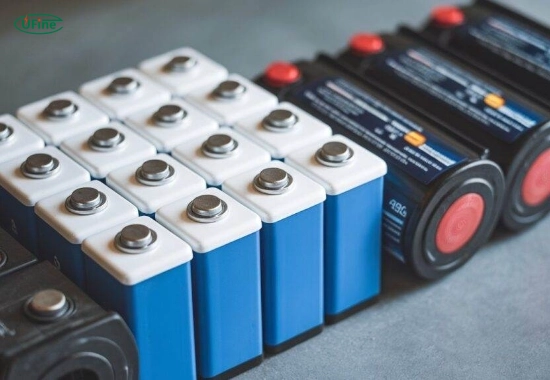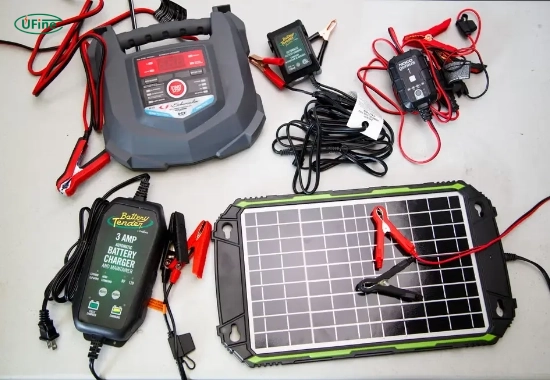In today’s world, 12V batteries are crucial in powering various devices and applications, from vehicles to renewable energy systems. Understanding the different types of 12V batteries available can help you make informed decisions for your specific needs. This guide will delve into the various types of 12V batteries, their applications, advantages, and disadvantages, ensuring you have all the information necessary to choose the right battery for your requirements.
Part 1. What are 12V batteries?
12V batteries are rechargeable power sources with a nominal voltage of 12 volts. People widely use them in numerous applications due to their versatility and efficiency. The most common uses include:
- Automotive applications: Starting engines and powering electrical systems in cars.
- Recreational vehicles (RVs): Providing power for lighting, appliances, and other electrical devices.
- Marine applications: Supplying energy for boats and yachts.
- Renewable energy systems: Storing energy from solar panels or wind turbines.
The choice of a 12V battery depends on several factors, including the intended application, budget, and specific performance requirements.
Part 2. What are the main types of 12V batteries?
We can generally categorize 12V batteries into two main types: lead-acid batteries and lithium-ion batteries. Each type has its unique characteristics, benefits, and drawbacks.
Lead-acid batteries
Lead-acid batteries are one of the oldest types of rechargeable batteries available. We further divide them into several subtypes:
- Flooded lead-acid batteries: These are the most common type of lead-acid battery. They consist of lead plates submerged in a sulfuric acid solution. While affordable and widely available, they require regular maintenance, including checking water levels.
- Absorbent Glass Mat (AGM) batteries: AGM batteries use a fiberglass mat to absorb the electrolyte solution, preventing spillage. They are sealed and maintenance-free, making them popular for many applications.
- Gel lead-acid batteries: These batteries use a gelled electrolyte instead of liquid acid. They are less prone to leakage and can operate in extreme temperatures but may have lower discharge rates than flooded lead-acid options.
Lithium-ion batteries
Lithium-ion batteries have gained popularity in recent years due to their superior performance characteristics:
- Lithium Iron Phosphate (LiFePO4): This subtype offers high safety levels, long cycle life, and excellent thermal stability. They are ideal for applications requiring deep cycling.
- Ternary lithium batteries: These utilize nickel-cobalt-manganese oxide as the cathode material. They provide high energy density and fast charging capabilities but may be more expensive than other options.
Part 3. How do 12V batteries work?
The operation of a 12V battery relies on chemical reactions within its cells.
In lead-acid batteries:
- Discharge process: When you connect the battery to a load (e.g., a car starter), a chemical reaction occurs between the lead plates and sulfuric acid, producing electrical energy.
- Charge process: When connected to a charger, the reverse reaction occurs, converting electrical energy back into chemical energy stored in the battery.
In lithium-ion batteries:
- Discharge process: Lithium ions move from the anode to the cathode through an electrolyte during discharge, generating electricity.
- Charge process: When charging, lithium ions move back to the anode from the cathode.
Part 4. What factors should you consider when choosing a 12V battery?
Selecting the right 12V battery involves considering several key factors:
- Capacity (Amp-Hours): This indicates how much energy a battery can store and deliver over time. Higher capacity is essential for applications requiring prolonged power supply.
- Cycle Life: This refers to how many complete charge-discharge cycles a battery can undergo before its capacity significantly diminishes. Lithium-ion batteries typically offer more cycles than lead-acid options.
- Weight and Size: Depending on your application (e.g., RVs or marine use), weight and physical dimensions may be critical for installation.
- Temperature Range: Some batteries perform better in extreme temperatures than others. For example, AGM and gel batteries can handle colder conditions better than flooded lead-acid types.
Part 5. What are the advantages of using lithium-ion 12V batteries?
Lithium-ion 12V batteries come with several advantages that make them appealing for various applications:
- Higher energy density: They store more energy in a smaller size than lead-acid batteries.
- Longer lifespan: Lithium-ion batteries often last longer than their lead-acid counterparts due to their superior cycle life.
- Maintenance-free operation: Lithium-ion options do not need much attention, unlike flooded lead-acid batteries requiring regular maintenance.
- Faster charging times: Lithium-ion technology allows quicker recharging than traditional lead-acid methods.
Part 6. What are the disadvantages of using lithium-ion 12V batteries?
Despite their benefits, lithium-ion 12V batteries also have some drawbacks:
- Higher initial cost: The upfront price for lithium-ion technology is generally more expensive than lead-acid options.
- Temperature sensitivity: Extreme temperatures can affect lithium-ion batteries; high or low temperatures can impact performance and lifespan.
Part 7. What are common applications for different types of 12V batteries?
Understanding where each type of battery excels can help you make informed decisions:
Flooded Lead-Acid Batteries
- Ideal for starting engines in vehicles.
- Commonly used in backup power systems where cost is a primary concern.
AGM Batteries
- Perfect for RVs and marine applications due to their maintenance-free nature.
- Suitable for high-drain devices like winches or trolling motors.
Gel Batteries
- Excellent choice for solar energy storage systems where leakage prevention is critical.
- Suitable for deep cycle usage in off-grid applications.
Lithium-Ion Batteries
- Best suited for electric vehicles due to their high energy density and quick charging capabilities.
- Increasingly popular in renewable energy systems for efficient storage solutions.
Part 8. How do you maintain a 12V battery?
Proper maintenance can significantly extend the lifespan of your battery:
For Lead-Acid Batteries
- Regularly check fluid levels and top up with distilled water as needed.
- Clean terminals to prevent corrosion.
- Keep them charged; avoid deep discharges whenever possible.
For Lithium-Ion Batteries
- Store at recommended temperatures; avoid extreme heat or cold.
- Use appropriate chargers explicitly designed for lithium technology.
- Monitor state-of-charge regularly using built-in management systems if available.
Part 9. FAQs
-
What is the lifespan of a typical 12V battery?
The lifespan varies by type; lead-acid typically lasts around 3–5 years, while lithium-ion can last over a decade with proper care. -
Can I replace my car’s lead-acid battery with a lithium-ion battery?
Yes, but ensure compatibility with your vehicle’s electrical system and charging requirements before making any changes. -
How do I know when my battery needs replacing?
Signs include reduced performance (e.g., slow cranking), visible corrosion on terminals, or swelling in case structure (especially with lithium-ion). -
Are there any safety concerns with lithium-ion batteries?
While generally safe when used correctly, improper handling or exposure to extreme conditions can pose risks like overheating or fire hazards. -
Can I connect multiple 12V batteries?
Yes! You can connect them in parallel to increase capacity or in series to increase voltage; ensure they are of similar type and age for best results.
Related Tags:
More Articles

What type of battery does an RC plane use?
Learn what battery RC planes use, how to choose, charge, and maintain them. A complete beginner guide in simple words.
12V 20Ah Battery Runtime Guide by Load & Chemistry
Discover how long a 12V 20Ah battery lasts under different loads. Learn key factors, runtime calculations, and battery type comparisons.
How Long Can a 21700 Battery 5000mAh Be Used?
Discover how long a 21700 battery 5000mAh lasts in real use. Learn about runtimes, device compatibility, and tips to extend battery performance.
Panasonic 18650 Battery Models Guide
Explore popular Panasonic 18650 battery models, specs, and uses. Compare NCR18650B, GA, PF, and more to find the best cell for your project.
[Full Expert Guide] 18650 LiFePO4 Battery Explained
Explore the features, advantages, and best uses of 18650 LiFePO4 batteries. Find out how they compare to standard lithium-ion cells.






